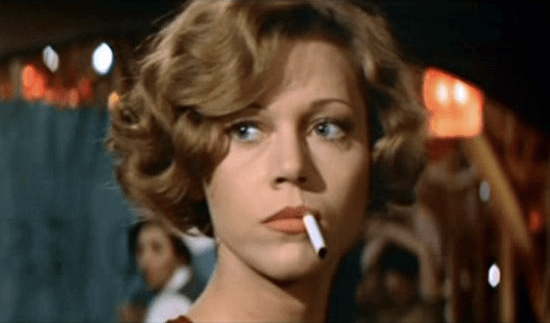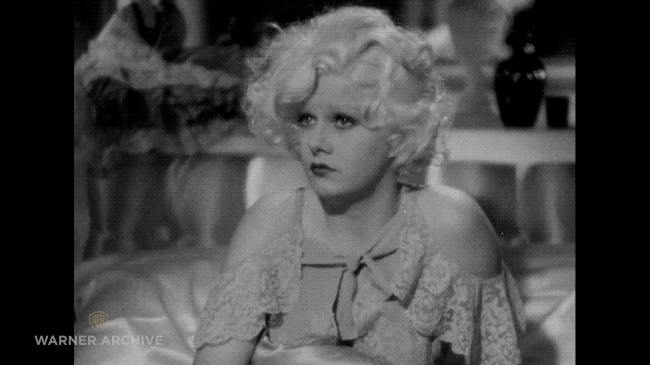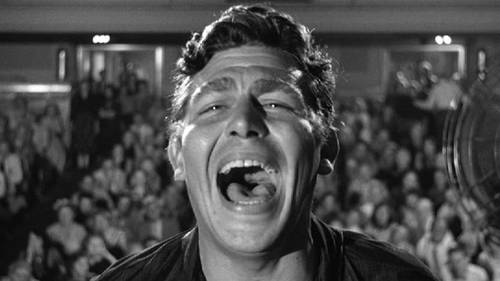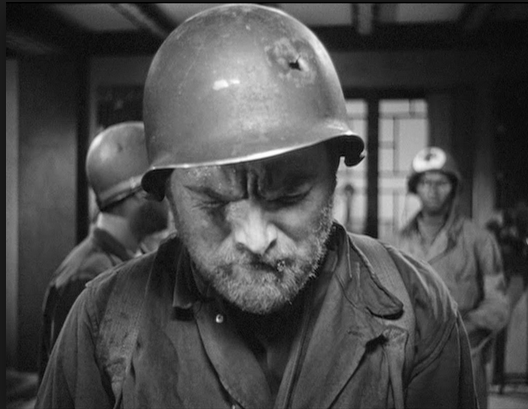True Story: One of our very first jobs was at a local television station, and part of our executive duties (ha ha) was to purge files in a forgotten cabinet. This task had obviously been put off for years; the cabinet was so full of paper it nearly exploded when you opened the drawers.
It was while we were knee-deep in these outdated files that we unexpectedly found the complete script of Casablanca.
Now, this script looked like it had been photocopied a zillion times. But to us, it was like finding a Fabergé egg at a rummage sale.
We were reminded of this when we read Lessons in the Dark by classic movie blogger (and author) John Greco.
Lessons is a guide to some of the notable classic Hollywood films – notable because they are as relevant to our society today as they were when first released. Remarkably, a few of these films have become even more timely over the years.
“Life and art repeat themselves,” says Greco in the introduction. “Classic films help us remember the past, both the good and the bad. Sometimes they even predict the future as it did in Elia Kazan’s A Face in the Crowd (1957) and Sidney Lumet’s Network (1976)…”
By compiling the films he’s chosen in this format, Greco shows us that watching classic film isn’t an archaeological exercise. Some of these films tell us more about ourselves today than we may at first realize.
In Lessons, films are divided into categories that reflect many of issues we grapple with today, including social injustice, the effects of war and the influence of the media.
Greco analyzes these films and comes to some surprising conclusions, such as his examination of the 1952 western, High Noon. The movie, says Greco, appeals to people on opposite ends of the political landscape. “High Noon does not fit snugly into any one philosophy,” he writes (p. 72).
Because Greco is also a photographer, he provides interesting observations about cinematography. For example, he talks about director William Wyler’s style in The Best Years of Our Lives (1946). “Wyler’s use of the camera has always been subtle,” he says. “His point of view is always focused on the story. The audience [is] connected by what is unfolding on the screen” (p. 27).
He also analyzes James Wong Howe’s style in Seconds (1966). “[Howe’s] cinematography is remarkable,” he writes, “his use of wide angle lens, fish eye lens and hand held camera shots were innovative, disturbing and today still way ahead of much of what we see on screen” (p. 80).
See? It’s things like this that make a person feel like a real Smarty Pants when reading Lessons.

Jane Fonda in They Shoot Horses, Don’t They? (1969) Image: contioutra.com
Of course, any collection of film writing is subjective, a reflection of the author’s opinions. There is no such thing as The Definitive Guide. But Greco’s is worth reading because he’s showing us the relevancy of film as art, which makes it utterly cool.
We wish, in a way, we had found this guide many years ago when we were still novices in exploring classic film. It would have shown us how to think more critically about film, and how to look at scene composition. We feel we would have been much further ahead with this guide.
In fact, if we had found a copy of Lessons in the Dark in that over-stuffed filing cabinet years ago, we would have been just as thrilled as finding the script of Casablanca.
Notes:
- You can purchase a copy of Lessons in the Dark (Kindle edition) from Amazon HERE.
- Check out John Greco’s fab blog, Twenty Four Frames, HERE.
The author sent us an advance reading copy to review.












Wait, what?! “unexpectedly found the complete script of Casablanca.” What?! (I haven’t read the rest of the post. I’ll be right back.)
LikeLiked by 1 person
I love this exploration and critical thinking of films. Film is art. It really just is. Sounds like a great book. (Not like finding a script, IMO, but still cool.) 🎭 Thanks for sharing!
LikeLiked by 1 person
Haha! Finding the Casablanca script was such a thrill.
I really do wish I had found this book back in the day. However, I can still learn from it. 🙂
LikeLiked by 1 person
Sounds like a great book, Ruth, and one that I’d find fascinating. Well, I hope so. I bought it and it’s now waiting for me on my iPad. A copy of the script from Casablanca? Really? Now that would be something to read, no matter how many copies removed from the original it was.
LikeLiked by 1 person
Oh yes, the Casablanca script was such an exciting discovery. I didn’t get much work done during the rest of the day, I’m sure.
I hope you enjoy the book. John Grecco has some really interesting observations, and he’s chosen an eclectic array of films.
LikeLike
Ruth, thanks for the excellent review and thanks to all who read the book. Appreciate it.
LikeLiked by 1 person
My pleasure, John! 🙂
LikeLiked by 1 person
Based on the films mentioned in this post, this book sounds like required reading!
LikeLiked by 1 person
John has assembled a truly interesting collection of films, some of which wouldn’t have occurred to me to connect with issues we face today. (Whoa! Is that an awkward sentence!) He’s given me some films to add to my Must Watch List!
LikeLike
I was interested in, and glad for the fact that Greco mentions the camera work in SECONDS, which I’ve always thought was unforgettably haunting and unsettling—a film that should be seen more. Another book for my list! Thanks for the recommendation!
LikeLiked by 1 person
I have yet to see Seconds… I bought a Rock Hudson DVD collection on sale a few weeks ago, but was disappointed to see Seconds wasn’t included. 😦
LikeLike
I was quite busy last days, so I have now lots to read, like always very interesting stories!
Thanks and have a great day! 🙂
LikeLiked by 1 person
Thanks for dropping by! Life does get busy…which is why it’s great to visit a website like yours, where a person can pretend they’re on vacation. 🙂
LikeLiked by 1 person
That’s very sweet! Thank you!
From today, I have a small contest – and you’re very welcome!
LikeLiked by 1 person
I love John’s review so his book naturally sounds delightful! By the way, I once worked at a TV station, too, but sadly never found a CASABLANCA script….
LikeLiked by 1 person
You worked at a TV station too? I bet you had a real executive-type position, like program manager. Those were some crazy days…
LikeLike
*click* Files a wish that you’d do a post on that Casablanca script 😀
LikeLiked by 1 person
Ha! That’s am awesome idea! I might do that.
LikeLike